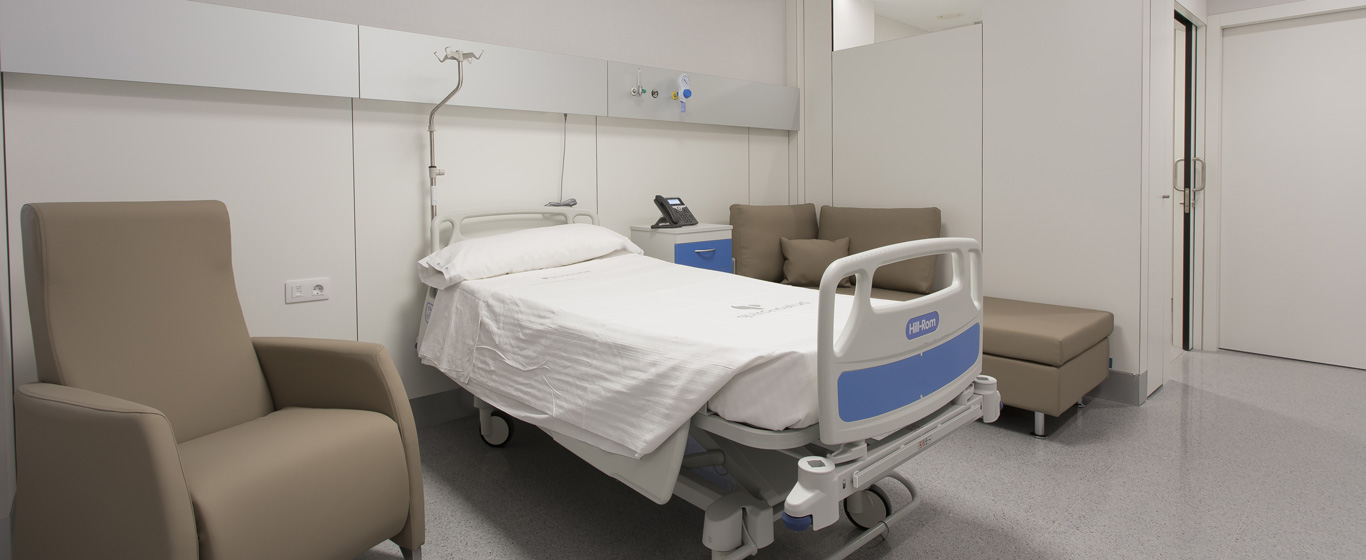Nephritic Syndrome
What causes nephritic syndrome? All the information about this condition: causes, symptoms, and treatments.
Symptoms and Causes
Nephritic syndrome refers to the set of alterations and symptoms caused by inflammation of the renal glomeruli (glomerulonephritis). The glomeruli are the functional units of the kidney and consist of a network of blood capillaries surrounded by an external capsule. They are located in the nephron of the kidney and their function is to filter and cleanse blood plasma, the first stage of urine formation.
Inflammation of the glomeruli prevents proper blood filtration. This leads to a decrease in urine production, which causes nitrogenous substances, such as urea, to accumulate in the blood, and results in the retention of water and salts. The fluid retention, in turn, causes increased blood pressure and edema.
Depending on its development, nephritic syndrome can be:
- Acute nephritic syndrome: develops over a short period.
- Chronic nephritic syndrome: progresses gradually over time.
According to the origin of the syndrome, it can be:
- Primary: inflammation originates in the kidneys.
- Secondary: inflammation is due to an underlying condition.
Symptoms
The characteristic symptoms of nephritic syndrome are:
- Hematuria: blood in the urine.
- Oliguria: decreased urination.
- Edema: tissue inflammation due to fluid retention. It starts in the legs, feet, abdomen, arms, or hands and may extend to the face and eyelids.
- Hypertension.
Additionally, other symptoms may appear:
- General malaise and discomfort.
- Headaches.
- Nausea and vomiting.
- Cough with mucus or foamy material.
- Joint or muscle pain.
- Blurred vision.
- Appearance of bruises.
- Pain in the abdominal flank.
- Breathing difficulties.
- Drowsiness or confusion.
Causes
The causes of primary nephritic syndrome are conditions that damage the glomeruli, the most common of which include:
- Membranoproliferative glomerulonephritis.
- IgA nephropathy.
- Crescentic glomerulonephritis.
Secondary nephritic syndrome, on the other hand, can result from a wide range of disorders:
- Bacterial infections, typically in the skin or throat caused by streptococci (post-streptococcal glomerulonephritis, the most common cause of the syndrome, especially in children). It can also be another type of bacterial infection, such as endocarditis caused by staphylococci or pneumococci.
- Viral infections, such as chickenpox, measles, Epstein-Barr, hepatitis B and C, shingles, or Coxsackie virus.
- Parasitic infections, such as malaria or schistosomiasis.
- Autoimmune disorders, such as systemic lupus erythematosus, diabetes, or Goodpasture syndrome.
- Vasculitis, such as Wegener's granulomatosis, microscopic polyangiitis, Schönlein-Henoch purpura, or cryoglobulinemia.
- Hereditary glomerular disorders, such as Alport syndrome (hereditary nephritis) or thin basement membrane disease.
- Medications that cause kidney damage, such as hydralazine, interferon alpha, non-steroidal anti-inflammatory drugs, lithium, quinine, mitomycin C, or chemotherapy drugs.
Risk Factors
The risk of developing nephritic syndrome increases with the presence of infections or associated disorders and the use of medications that cause kidney damage.
Complications
Nephritic syndrome caused by post-streptococcal glomerulonephritis often leads to acute kidney failure, a sudden and rapidly progressing loss of kidney function that, if untreated, can be fatal. If glomerular inflammation persists for a long time, the resulting damage may progress to chronic kidney failure, which may require dialysis or even a kidney transplant.
In severe cases, fluid accumulation can affect the lungs and cause acute pulmonary edema, resulting in difficulty breathing, pulmonary hypertension, and heart failure.
Prevention
The following measures can help prevent nephritic syndrome:
- Protecting against infections through vaccination, hygiene, and safe sexual practices.
- Early treatment of infections.
- Avoiding the use of medications that cause kidney damage.
Which doctor treats nephritic syndrome?
Nephritic syndrome is diagnosed and treated by nephrology specialists.
Diagnosis
Nephritic syndrome is suspected based on the manifestation of characteristic symptoms and a history of associated conditions. To confirm it, the following tests are performed:
- Urine analysis, to check for the presence of blood, proteins, and hematic casts (accumulations of red or white blood cells caused by glomerular damage).
- Blood tests, to measure the levels of electrolytes, blood urea nitrogen, and creatinine, which are elevated in nephritic syndrome. The blood sample may also identify microorganisms causing the inflammation if it is an infection-related nephritic syndrome, or markers characteristic of associated autoimmune disorders.
- Kidney biopsy: in some cases, a tissue sample is analyzed to check for glomerular inflammation, assess the severity of the damage, and determine the underlying cause.
Treatment
The treatment of nephritic syndrome is not specific, but focuses on treating the underlying condition and alleviating symptoms until the disease resolves. Possible options include:
- Conservative treatment: rest, salt restriction in the diet, and fluid intake reduction to support kidney function recovery.
- Diuretics to facilitate urination, reduce fluid accumulation, and lower blood pressure.
- Antihypertensive medications, if previous treatments do not control hypertension.
- Antibiotics, in the case of acute nephritic syndrome due to bacterial infection.
- Immunosuppressive medications or corticosteroids, if the underlying cause is an autoimmune disorder.
- Dialysis: in cases of severe kidney failure, a machine that functions as an artificial kidney may be required to filter the blood. If the failure is acute, dialysis is used until kidney function recovers; in chronic or terminal cases, it is a long-term treatment or a temporary measure while awaiting a transplant.
































































